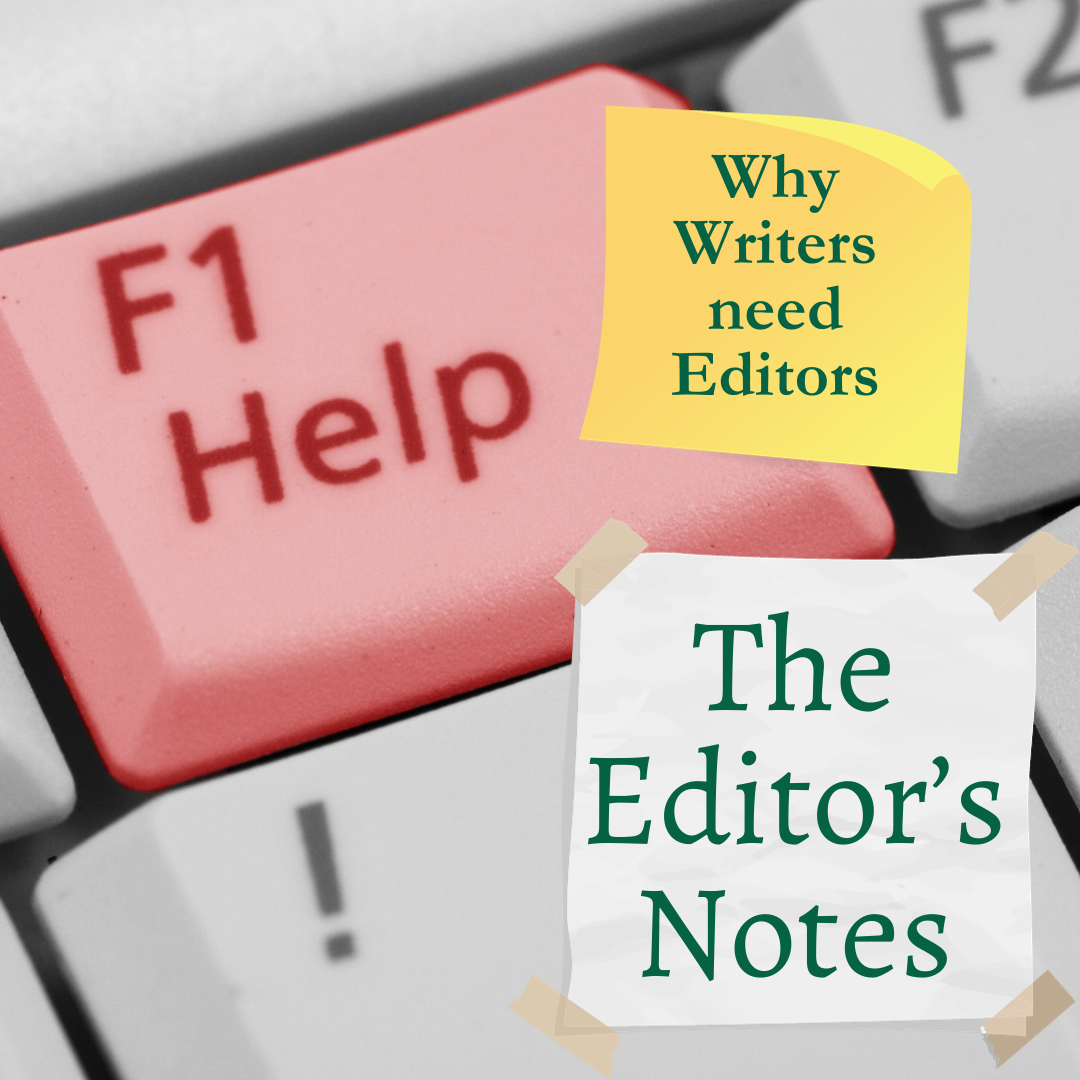So, you’ve finally finished your book. Finally, at last, wrote the words “The End” (or not, I won’t judge). Perhaps you’ve even done some revising, maybe some editing. Or maybe it’s been finished for a long time and you’ve gone over it half a million times with the finest comb money can buy (not that I’ve done that myself, I say with a nervous laugh).
No matter where you are in the process, one thing every writer absolutely needs to become a successful author is a good editor.
Some editors may try to claim they have no need of an editor themselves, since they are editors. But that’s just naive thinking. (I don’t care how good you think you are, you still need an editor. That isn’t you.) I’m sure there are still typos somewhere on this website that I haven’t caught (and I’m extremely anal about typos).
That’s the nature of writing. No matter how many times you check it and check it (in fact, too much rereading can make proofreading nearly impossible), new eyes will always catch things you’ve missed. If you’ve ever written a word so many times it starts to look odd, then it’s not a stretch to consider that reading the same typo over and over can make it look correct. Or perhaps you’ve seen those tricky posts where all the letters in the middle of every word are jumbled up, but you somehow read it all just fine. Our brains are constantly trying to fill in the blanks, to make sense of the seemingly senseless things we see in the world, including our own writing.
And that’s just the copy editing stage!
What about the plot holes you manage to skate around without ever noticing them? Are your characters buying supplies with a nonexistent economic system? Did a sibling suddenly appear in the story as if they’d always been there? Did some characters seem to forget an important event as if it never happened? We make changes to our story throughout the whole process, but sometimes those changes don’t always make it to the page. And oftentimes those changes are small enough that we, as the authors, never see it no matter how many times we read it.
The fact is that no one will ever be as familiar with your writing or your characters as you are. You can see every strand of your story’s web because its all in your head, but an editor will see only what you’ve written. And putting together a quality story requires a lot of strands. Remembering which strands you’ve laid the groundwork for and which ones live only in your head is simply not a one person job.
Now all of this might seem a bit discouraging. Writers can get a lot wrong, but what about the things we get right? I’m sure you’ve heard it before, but we really are our own worst critics. Sometimes the most important thing we need is someone who can look at our writing objectively and tell us with confidence what we’re doing well. What you think you’re terrible at, might just be your greatest strength. And if you can’t get past your inner critic to see the things that are working well, you run the risk of changing something that didn’t need changing to begin with (trust me, I’ve made that mistake more times than I care to admit).
That’s where a good editor will prove invaluable.
Not only will an editor be skilled in spotting all those troublesome issues, but they will be new, fresh eyes. Beta readers and critique partners definitely have their values, but editors have the skill and experience beta readers often can’t offer while also avoiding the blind spots that come with the familiarity typically found in critique partners. Don’t ever underestimate the power of novelty when it comes to determining the quality of writing. And don’t overestimate your own ability to see past your blind spots.
Editors might sometimes seem like an enemy of creativity, but they are actually one of the most valuable assets a writer will ever have.


One response to “Why writers need editors”
Hi, this is a comment.
To get started with moderating, editing, and deleting comments, please visit the Comments screen in the dashboard.
Commenter avatars come from Gravatar.